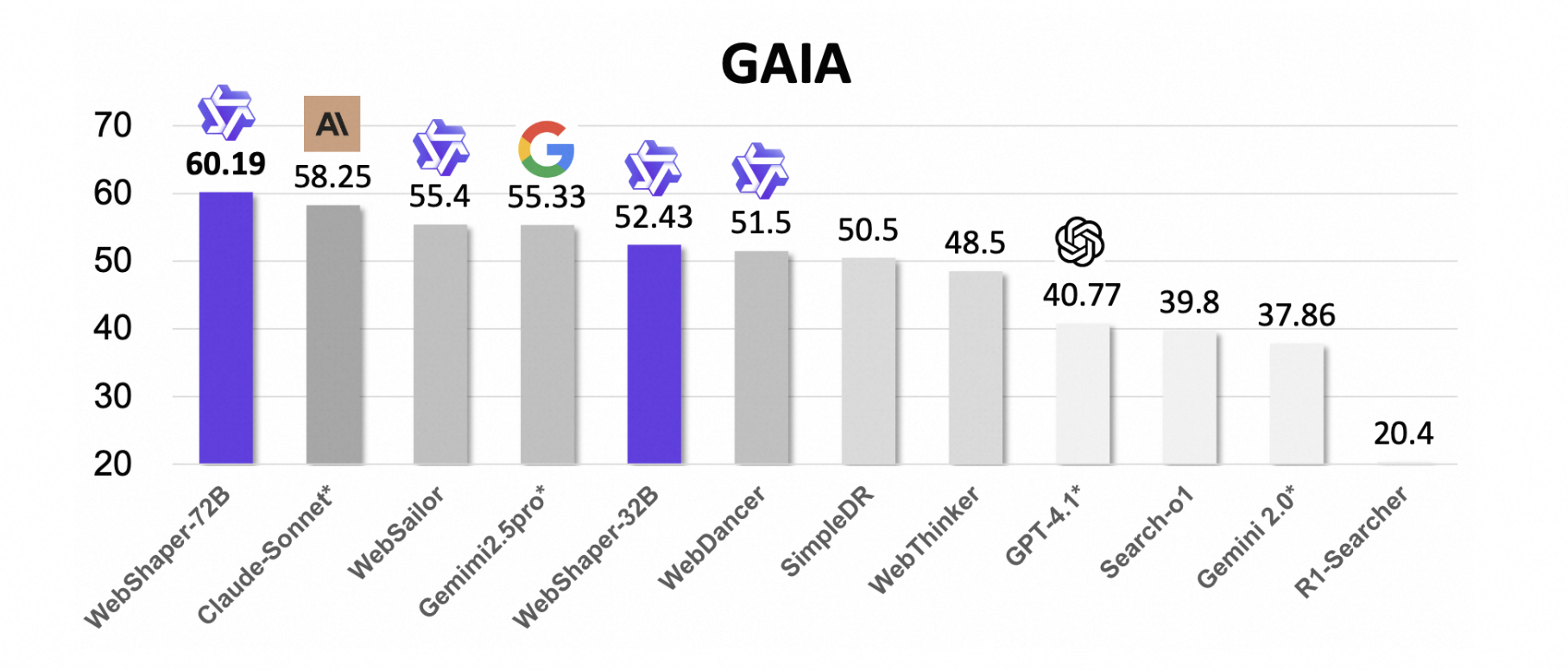WebShaper: Agentically Data Synthesizing via Information-Seeking Formalization
Abstract
A formalization-driven framework called WebShaper synthesizes information-seeking datasets using set theory and Knowledge Projections, enhancing the performance of LLM-powered agents on open-ended tasks.
The advent of Large Language Model (LLM)-powered agents has revolutionized artificial intelligence by enabling solutions to complex, open-ended tasks through web-based information-seeking (IS) capabilities. The scarcity of high-quality training data has limited the development of IS agents. Existing approaches typically adopt an information-driven paradigm that first collects web data and then generates questions based on the retrieval. However, this may lead to inconsistency between information structure and reasoning structure, question and answer. To mitigate, we propose a formalization-driven IS data synthesis framework WebShaper to construct a dataset. WebShaper systematically formalizes IS tasks through set theory. Central to the formalization is the concept of Knowledge Projections (KP), which enables precise control over reasoning structure by KP operation compositions. During synthesis, we begin by creating seed tasks, then use a multi-step expansion process. At each step, an agentic Expander expands the current formal question more complex with retrieval and validation tools based on our formalization. We train our model on the synthesized dataset. Experiment results demonstrate that WebShaper achieves state-of-the-art performance among open-sourced IS agents on GAIA and WebWalkerQA benchmarks.
Community
The advent of Large Language Model (LLM)-powered agents has revolutionized artificial intelligence by enabling solutions to complex, open-ended tasks through web-based information-seeking (IS) capabilities. The scarcity of high-quality training data has limited the development of IS agents. Existing approaches typically adopt an information-driven paradigm that first collects web data and then generates questions based on the retrieval. However, this may lead to inconsistency between information structure and reasoning structure, question and answer. To mitigate, we propose a formalization-driven IS data synthesis framework, WebShaper, to construct a dataset. WebShaper systematically formalizes IS tasks through set theory. Central to the formalization is the concept of Knowledge Projections (KP), which enables precise control over reasoning structure by KP operation compositions. During synthesis, we begin by creating seed tasks, then use a multi-step expansion process. At each step, an agentic Expander expands the current formal question more complex with retrieval and validation tools based on our formalization. We train our model on the synthesized dataset. Experiment results demonstrate that WebShaper achieves state-of-the-art performance among open-sourced IS agents on GAIA and WebWalkerQA benchmarks.
You guys are so fast!!!
We achieve new state-of-the-art results on GAIA (60.19) and WebWalkerQA (52.50) benchmarks.
WebShaper is a dataset for training information-seeking agents. We release 500 question-answer pairs in HuggingFace and ModelScope.
@callanwu Congrats on this great work. Have you tested the model on BrowseCamp? What's the performance there.
Models citing this paper 0
No model linking this paper
Datasets citing this paper 1
Spaces citing this paper 0
No Space linking this paper
